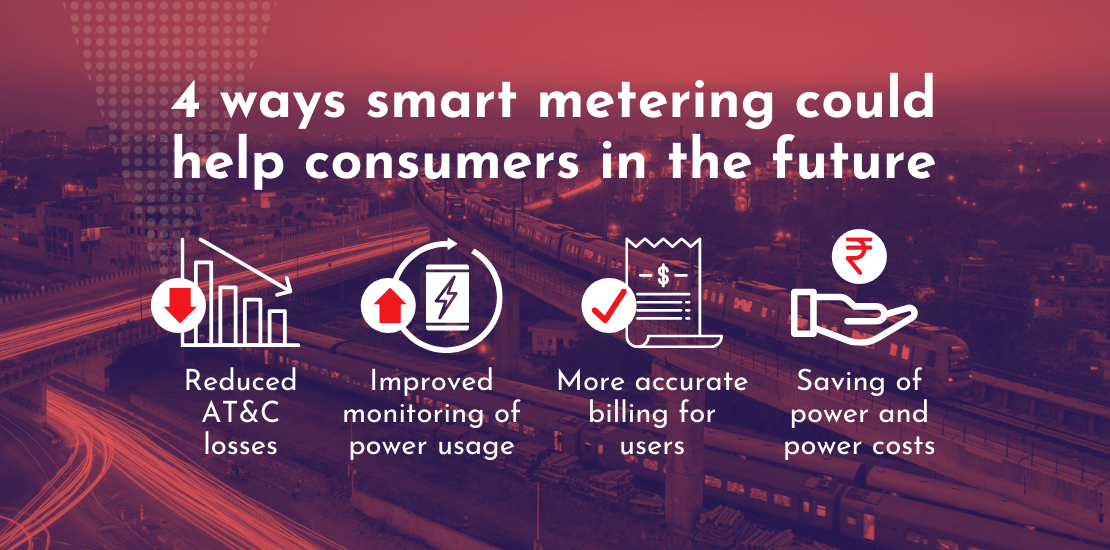- November 23, 2021
- Posted by: Dyaneshwar Nirmale
- Category: Digital Meters

The management of energy in India is changing, both on the distribution front as well as the consumption front.
n 2018, India completed the electrification of all villages. Now, the focus is shifting from the availability of power to power quality. For utility companies, it is vital to ensure efficient metering, billing, and revenue collection. For the consumers, especially the industrial ones, accuracy in billing, tracking of power usage, and data inputs for power saving strategies are important. From the viewpoint of power conservation and lower carbon footprint, there is also a growing demand for smart buildings.
The answer to all of these issues lies in the implementation of smart metering.
In 2020, the Government of India set aside Rs 3.5 lakh crore to achieve the target of 100% smart metering of energy by 2022. Smart metering could help better integrate renewable energy systems into the grid. It could improve power quality and help consumers better analyze and optimize their power use while enabling utilities with better monitoring of power supply for billing.
Here’s how smart metering could benefit the consumer.
Reduced AT&C losses
Technical and commercial losses of power turning transmission mean the power declines in both quality and quantity by the time it reaches the consumer. Implementing smart metering at the DISCOM as well as the consumer’s end will make tracking and mitigation of AT&C losses easier and more efficient.
Lower AT&C losses, in turn, result in improved quality and availability of power for the consumers.
Improved monitoring of power usage
The technical specifications of the Central Electricity Authority lay down that smart meters must be equipped with features such as integrated load limiting switch, bidirectional communication, remote firmware upgrade, net metering, and time of day tariff features among others.
The regulations also stipulate that the meters should retain the recorded data for a specified period of time. This data could then be analyzed to study the power consumption pattern and reduce power usage
More accurate billing for users
The smart meters communicate the consumer’s exact energy usage to the utility company. Hence, the consumer is billed exactly for the power they use. In the case of non-smart meters, the manual meter reading might have certain errors, or if the reading is not submitted, the utility bills the customers by drawing an estimate of their average power usage. Here, there are chances of the customer being billed more than their actual power usage.
Smart metering ensures that the consumer is billed exactly for only the power they consume every month.
Saving of power and power costs
The meters can monitor key power quality parameters and provide data for specific loads if needed. Analysis of the data could provide input for developing power-saving strategies.
Experts have observed that using smart meters could help consumers reduce their power consumption by around 7%.
Conclusion
Smart monitoring and measurement of power is essential from the viewpoint of power quality as well as optimization of power use for the consumers. For the DISCOMs, smart metering is the key to cutting their AT&C losses and improving the billing and revenue collection. Many upcoming standards are counting on high-accuracy monitoring of key electrical parameters and power quality. Implementation of smart metering is the key to more efficient distribution and use of power in the near future.
